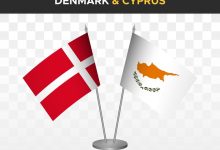Is education in netherland free ,everything you need to know.

Yes, education in the Netherlands is free and compulsory for all children from the age of 5 to 16. The Dutch education system is publicly funded and operated by the state, which means that all children, including foreign nationals, are entitled to free education in state-run schools.
In the Netherlands, there are three types of state-run schools:
- “Basisschool” (primary school) which is attended by children aged 5 to 12.
- “Voortgezet Onderwijs” (secondary school) which is attended by children aged 12 to 18.
- “Speciaal Onderwijs” (special education) which is for children with special needs.
The Dutch education system aims to provide a broad and balanced education that prepares students for further education and employment. The curriculum includes a wide range of subjects such as language, mathematics, science, social studies, physical education, art, and music.
It’s important to note that while education is free in the Netherlands, parents may need to pay for some additional costs such as school supplies, school trips, and extra-curricular activities. However, these costs are generally low compared to tuition fees in other countries, and the Dutch government provides financial assistance to families who may have difficulty covering these expenses.
Here are some examples of state-run schools in the Netherlands:
- Basisschool – This is the primary school system in the Netherlands for children aged 5 to 12. There are over 7,000 primary schools in the Netherlands, and children usually attend the school closest to their home.
- Voortgezet Onderwijs – This is the secondary school system in the Netherlands for children aged 12 to 18. There are three types of secondary schools: VMBO (pre-vocational secondary education), HAVO (higher general secondary education), and VWO (pre-university education).
- MBO – This is the vocational education system in the Netherlands for students aged 16 and over. MBO schools offer a range of vocational courses, including business, healthcare, and engineering.
- HBO – This is the higher vocational education system in the Netherlands for students aged 18 and over. HBO schools offer a range of vocational courses, including teacher training, nursing, and social work.
- Universiteit – This is the university system in the Netherlands. There are 14 universities in the Netherlands, offering a wide range of undergraduate and graduate degree programs.
These are just a few examples of the many state-run schools in the Netherlands. The Dutch education system provides a comprehensive education that meets the needs of students from all backgrounds and prepares them for success in life.
Private schools
In the Netherlands, private schools are also available alongside state-run schools. Private schools in the Netherlands are not funded by the government and therefore charge tuition fees. Here are some examples of private schools in the Netherlands:
- International schools – These schools cater to students from all over the world, offering instruction in multiple languages, including English. International schools often follow an international curriculum and offer a range of activities to promote cultural exchange.
- Montessori schools – These schools follow the educational philosophy of Maria Montessori, which emphasizes hands-on learning and individualized instruction. Montessori schools offer a wide range of materials and activities to explore.
- Waldorf schools – These schools follow the educational philosophy of Rudolf Steiner, which emphasizes artistic expression, creativity, and holistic learning. Waldorf schools offer a broad range of subjects and encourage students to explore their interests and passions.
- Religious schools – These are schools run by religious organizations, such as Catholic or Protestant groups, and often follow a religious curriculum.
- Independent schools – These schools are not affiliated with any particular educational philosophy or religion and offer a broad range of subjects and activities. Independent schools often have smaller class sizes and may provide more individualized attention to students.
It’s important to note that private schools in the Netherlands can be expensive, with tuition fees ranging from several thousand euros to tens of thousands of euros per year. However, private schools in the Netherlands also provide high-quality education and often offer specialized programs that may not be available in state-run schools.
IS university education free in netherland
No, university education is not free in the Netherlands. Public Dutch universities charge tuition fees to all international students regardless of their country of origin. However, students coming from the EU/EEA, Switzerland and Surinam often pay lower tuition fees than non-EU/EEA students.
The annual tuition fee for non-EU/EEA students is €9,200 for a bachelor’s degree and €11,800 for a master’s degree. However, there are some scholarships available for international students, which can help to reduce the cost of tuition. some of the scholarship programs include
- Holland Scholarship: This scholarship is offered to non-EU/EEA students who are applying for a full-time bachelor’s degree at a Dutch university. The scholarship covers the full tuition fee and a living allowance.
- Orange Tulip Scholarship: This scholarship is offered to students from a group of countries (India, Indonesia, China, Brazil, Mexico, Vietnam, and South Africa) who are applying for a master’s degree at a Dutch university. The scholarship covers the full tuition fee and a living allowance.
- Nuffic Scholarships: Nuffic is the Dutch organization for internationalization in education. They offer a variety of scholarships for international students, including scholarships for bachelor’s, master’s, and PhD degrees.
If you are interested in studying in the Netherlands, I recommend that you research the different scholarships that are available. This will help you to reduce the cost of tuition and make your dream of studying in the Netherlands a reality.
Sources for the schoolership program
- diaridelsestudiants.com/does-holland-have-free-university/
- www.mastersportal.com/articles/341/studyin







